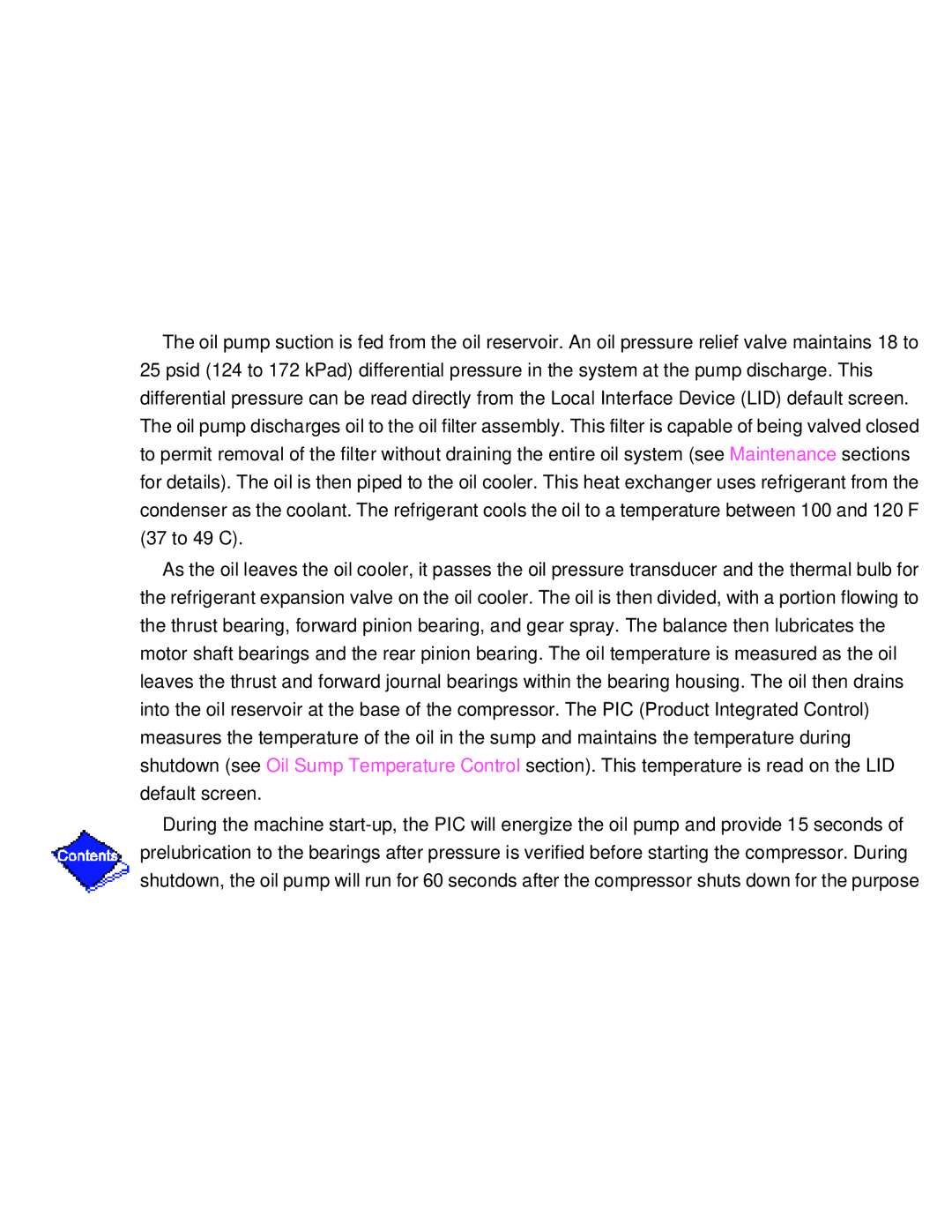
The oil pump suction is fed from the oil reservoir. An oil pressure relief valve maintains 18 to
25 psid (124 to 172 kPad) differential pressure in the system at the pump discharge. This differential pressure can be read directly from the Local Interface Device (LID) default screen. The oil pump discharges oil to the oil filter assembly. This filter is capable of being valved closed to permit removal of the filter without draining the entire oil system (see Maintenance sections for details). The oil is then piped to the oil cooler. This heat exchanger uses refrigerant from the condenser as the coolant. The refrigerant cools the oil to a temperature between 100 and 120 F (37 to 49 C).
As the oil leaves the oil cooler, it passes the oil pressure transducer and the thermal bulb for the refrigerant expansion valve on the oil cooler. The oil is then divided, with a portion flowing to the thrust bearing, forward pinion bearing, and gear spray. The balance then lubricates the motor shaft bearings and the rear pinion bearing. The oil temperature is measured as the oil leaves the thrust and forward journal bearings within the bearing housing. The oil then drains into the oil reservoir at the base of the compressor. The PIC (Product Integrated Control) measures the temperature of the oil in the sump and maintains the temperature during shutdown (see Oil Sump Temperature Control section). This temperature is read on the LID default screen.
During the machine
